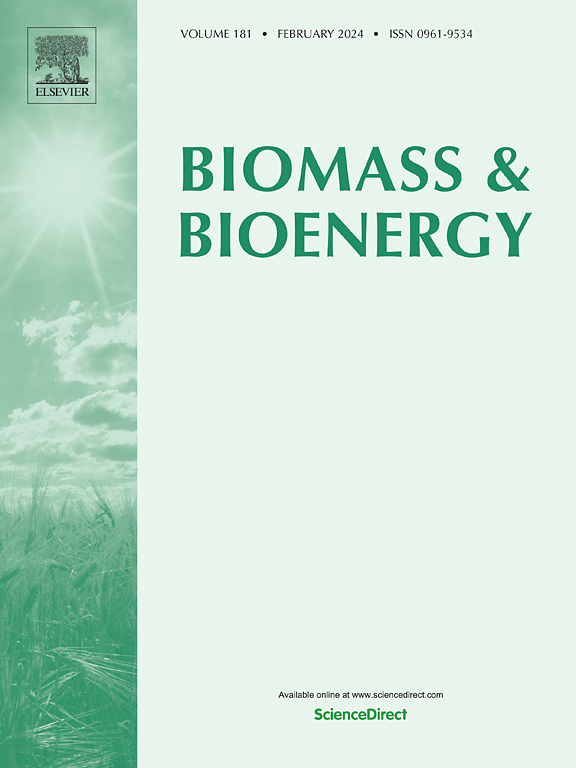Valorization of corn cob waste for furfural production: A circular economy approach
IF 5.8
2区 生物学
Q1 AGRICULTURAL ENGINEERING
引用次数: 0
Abstract
The depletion of fossil fuel reserves and escalating environmental issues necessitate a shift to renewable energy. Agricultural residues like corn cobs offer a sustainable and cost-effective alternative. This study introduces an innovative one-pot hydrothermal process for converting corn cob biomass into furfural, a versatile platform chemical. Utilizing dimethyl carbonate (DMC) as a green solvent, the process achieves an exceptional furfural yield of 93.26 % at 120 °C within 2 h, significantly surpassing conventional methods. This approach aligns with circular economy principles by transforming agricultural waste into valuable chemicals while minimizing environmental impact. The method's scalability and alignment with Indonesia's National Energy Policy highlight its industrial potential. The findings underscore advancements in green chemistry and offer a practical pathway for sustainable industrial applications.

求助全文
约1分钟内获得全文
求助全文
来源期刊

Biomass & Bioenergy
工程技术-能源与燃料
CiteScore
11.50
自引率
3.30%
发文量
258
审稿时长
60 days
期刊介绍:
Biomass & Bioenergy is an international journal publishing original research papers and short communications, review articles and case studies on biological resources, chemical and biological processes, and biomass products for new renewable sources of energy and materials.
The scope of the journal extends to the environmental, management and economic aspects of biomass and bioenergy.
Key areas covered by the journal:
• Biomass: sources, energy crop production processes, genetic improvements, composition. Please note that research on these biomass subjects must be linked directly to bioenergy generation.
• Biological Residues: residues/rests from agricultural production, forestry and plantations (palm, sugar etc), processing industries, and municipal sources (MSW). Papers on the use of biomass residues through innovative processes/technological novelty and/or consideration of feedstock/system sustainability (or unsustainability) are welcomed. However waste treatment processes and pollution control or mitigation which are only tangentially related to bioenergy are not in the scope of the journal, as they are more suited to publications in the environmental arena. Papers that describe conventional waste streams (ie well described in existing literature) that do not empirically address ''new'' added value from the process are not suitable for submission to the journal.
• Bioenergy Processes: fermentations, thermochemical conversions, liquid and gaseous fuels, and petrochemical substitutes
• Bioenergy Utilization: direct combustion, gasification, electricity production, chemical processes, and by-product remediation
• Biomass and the Environment: carbon cycle, the net energy efficiency of bioenergy systems, assessment of sustainability, and biodiversity issues.
 求助内容:
求助内容: 应助结果提醒方式:
应助结果提醒方式:


